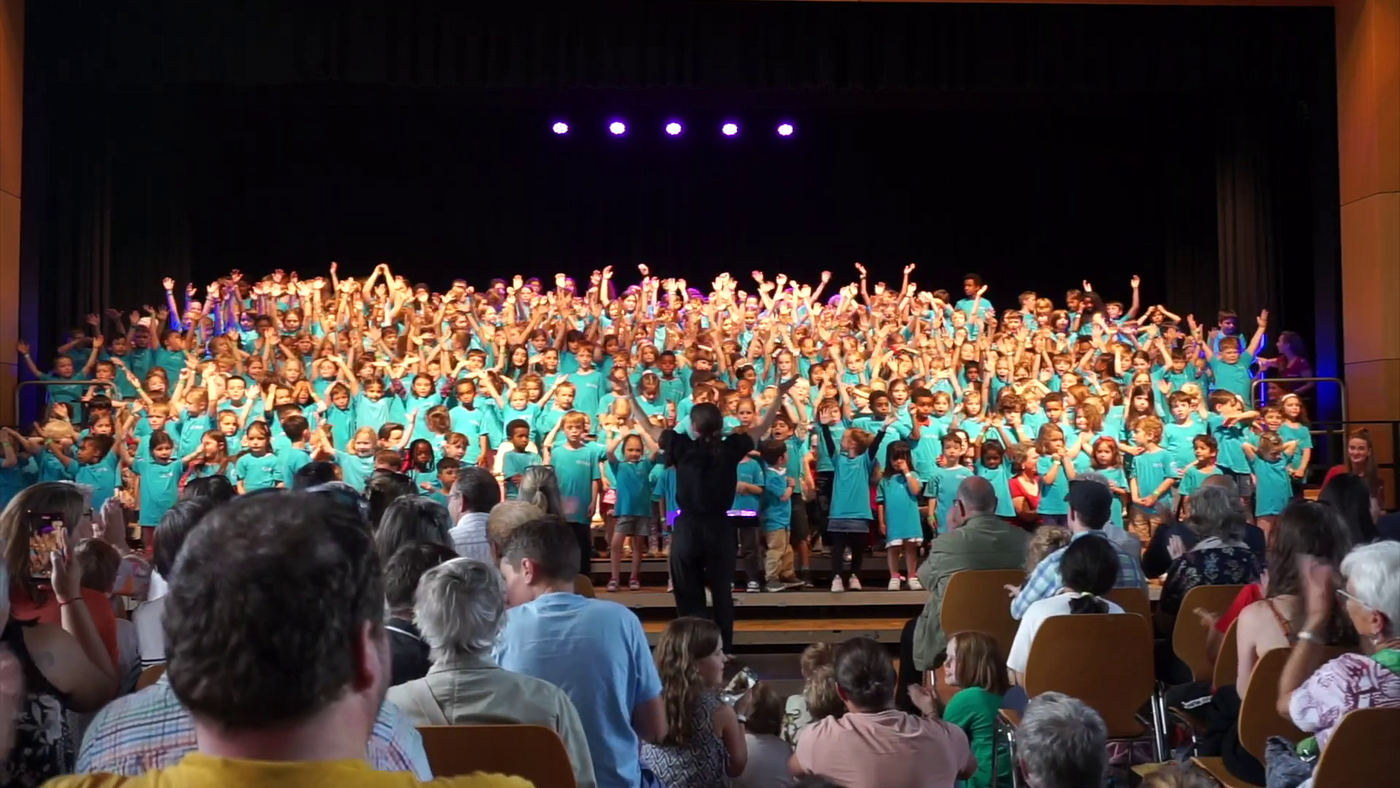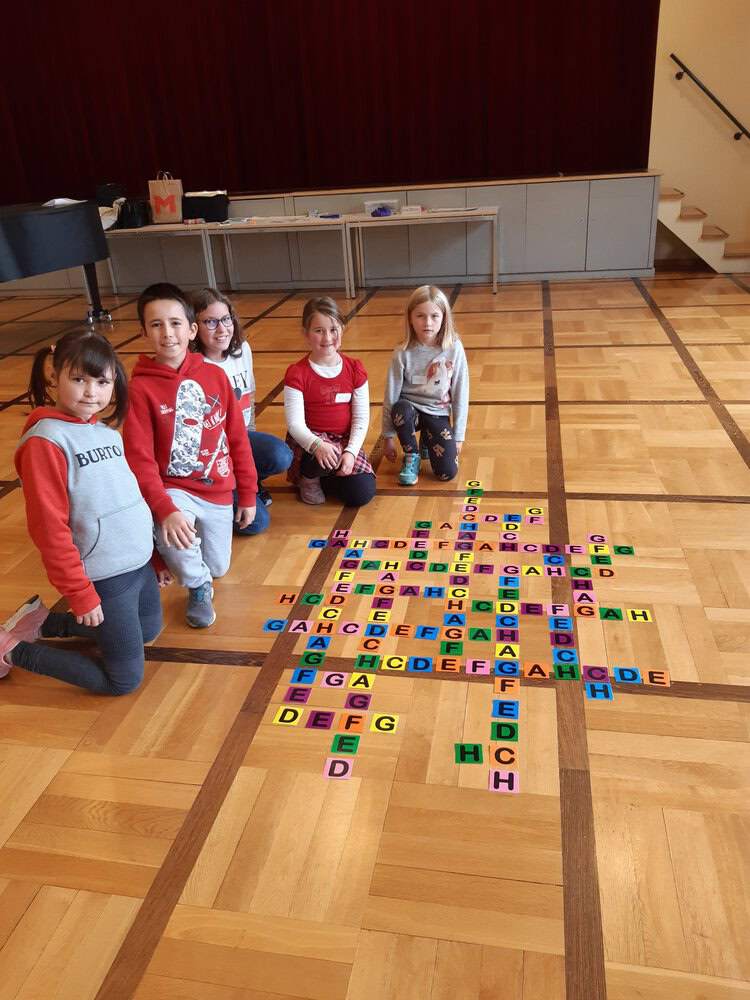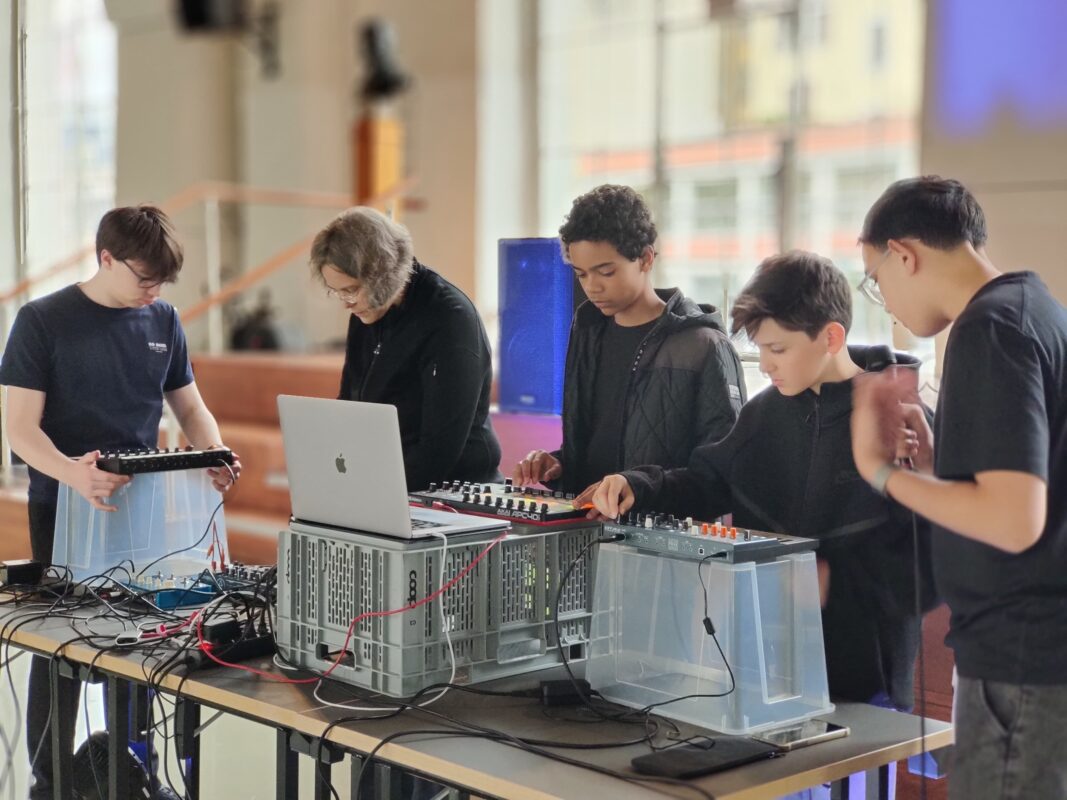Rethinking music education
Swiss music schools are becoming increasingly innovative. They are looking to collaborate with other institutions and are developing forms of teaching that complement individual instrument lessons. These include the music schools in Münchenstein (BL) and Alpnach (OW).

"We want children to spend more than just thirty minutes a week at music school," says Stefanie Dillier, Head of the Alpnach Music School in the canton of Obwalden, "The music school should be a low-threshold center for musical experiences of all kinds." With three new teaching formats under the joint title "Musikschule+", which will be launched permanently in the 2024/2025 school year after a pilot phase lasting several years, her music school is well on the way to achieving this.
Creative days - experiencing and learning together
Several times a year, teachers from the small municipal music school offer a creative day - a half day that replaces the individual lessons of the week and gives the students a shared experience. This can be a visit to the largest organ in Switzerland at Engelberg Abbey, a recording day in the studio or the construction of a monster drum, where all the percussion instruments from the music school are brought together and put together. "The teachers are very creative and the feedback from the students is great," says Stefanie Dillier. The parents also give the new format very high marks.

Workshops for music students and external participants
While the creative days are aimed at registered music students, other interested children and adults can also register for the newly advertised workshops, another new format. These include a pop choir, a pan ensemble and various bands. For younger children, the music school offers the "Music Mind Games" workshop, which promotes access to music in a playful way. Courses in music theory are also planned.
Practicing at the music school
The third format is supervised practice time. The fact that the music school is located in the same buildings as the elementary school allows music students to practice over lunchtime. Due to the space available, this is currently only possible on Mondays and Tuesdays - interested children can sign up for 15-30 minutes of practice time at the beginning of the semester, parents pay a symbolic amount and a teacher is always present to answer questions. "We want to get even more out of this," says Stefanie Dillier - the current stumbling blocks are the lack of space and the costs. She sees potential in the format because many pupils use the daytime structure of the elementary school and are therefore present over lunchtime anyway. It also takes the pressure off parents and encourages pupils to be independent at the same time.
When the anniversary becomes a village festival
"As an overall project, the Music School+ is cost-neutral," says Stefanie Dillier. This certainly contributes to acceptance - but she also emphasizes that the music school is highly valued in the village and is well anchored in the population. "Last year we celebrated our 50th anniversary, a real village festival. A lot is possible when the relationships with the school and the community are so good."
Singing at the school
The Münchenstein Music School in the canton of Basel-Landschaft also works closely with elementary school. As part of the "Klingende Schule" project, school classes from grades 1 to 6 take part in singing and music classes free of charge. The participating primary school teachers benefit from further musical training and teach with music teachers in team teaching. Highlights are the performances at the end of the school year. "I have to say, I'm absolutely thrilled," says Salome Zumbrunn, co-principal of the primary school in Münchenstein. "Singing and music are generally very important for a school."
Making the most of a cost-cutting measure
The basis for the project was originally not very encouraging. The municipality of Münchenstein was forced to cut the third lesson of music and movement for primary school pupils as part of a package of cost-cutting measures. As a compromise, funds were made available to the primary school and music school for cooperation projects. "We wanted to give the children musical experiences in Münchenstein," says Aloisia Dauer, who has been running the music school since 2023. As there is a large existing children's choir culture in Baselland, the project team from the two institutions quickly decided on joint singing classes, which were to be integrated into the morning lessons, and courses in percussion and Orff instruments over lunchtime. In addition, the primary school teachers should be able to attend further musical training courses.
Final concert in a packed hall
The response was already very positive in the first year of the project. At the final concert of all singing classes in July 2024, over three hundred children took to the stage. "We had a full concert hall, despite a Swiss football match," reports Aloisia Dauer, "The joy of music was clearly evident among the children, the teachers, the parents and the entire municipal council. It really was something very special."
Pilot project evaluated positively
The evaluation of the pilot phase also showed encouraging results. Teachers reported an improved class atmosphere thanks to singing together - the pupils would also sing the rehearsed songs together on excursions or in the playground. The further training courses in voice training, song repertoire and, from August 2025, "Song accompaniment with the guitar" were also particularly appreciated.
Form a network
"As a music school, we need to think more as a network and not just work on our own," says Aloisia Dauer. Individual lessons are still very important, but we also need to work together with schools and other institutions. "We have to make sure that as many children as possible come into contact with music. Community can develop through music - it brings people and generations together."
Award-winning
Both music schools were honored for their innovative projects at the VMS-Good-Practice-Wettbewerb 2024/2025 were awarded. The Münchenstein music school won 2nd prize from the jury, and the Alpnach music school received the audience prize.







